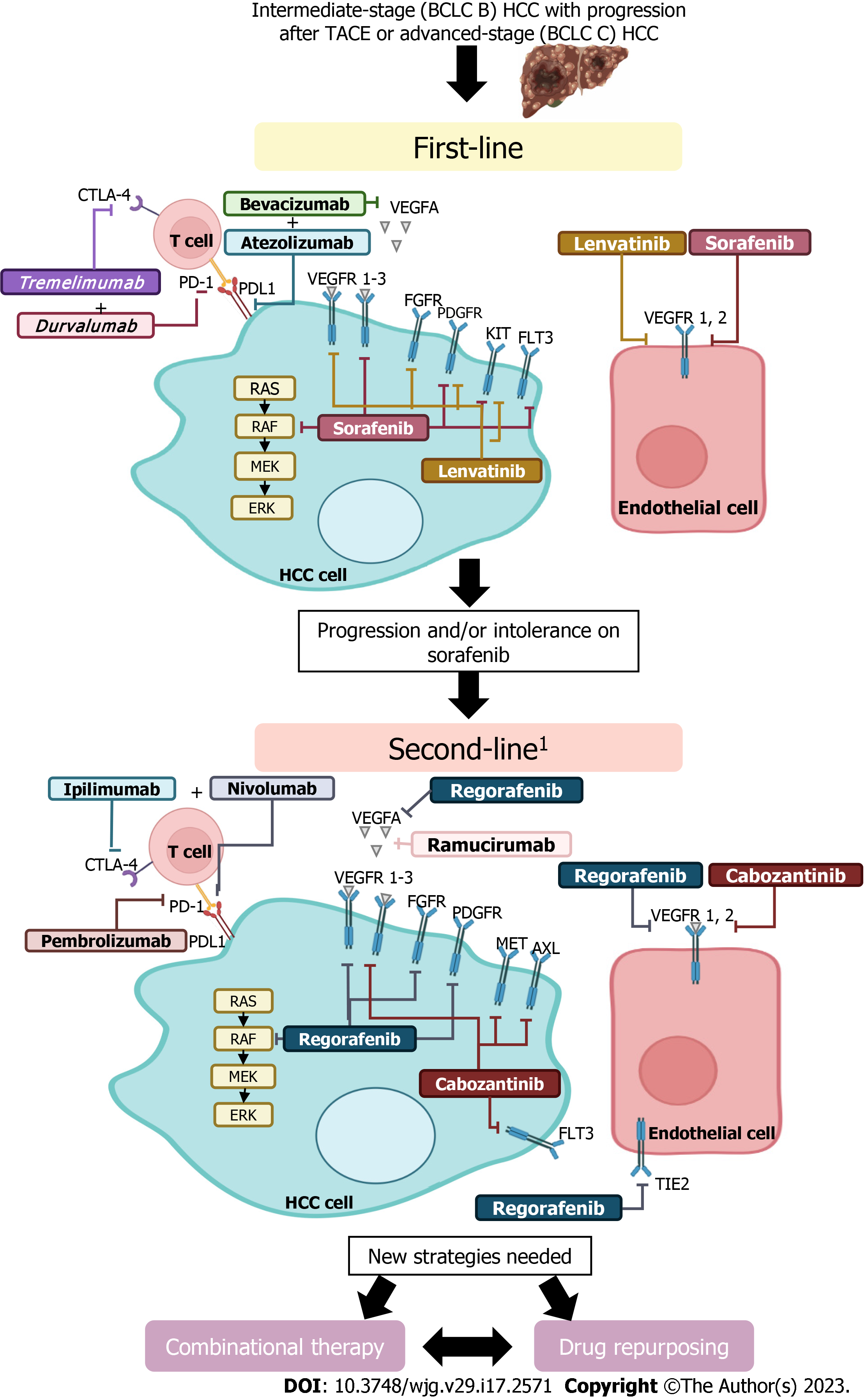Copyright
©The Author(s) 2023.
World J Gastroenterol. May 7, 2023; 29(17): 2571-2599
Published online May 7, 2023. doi: 10.3748/wjg.v29.i17.2571
Published online May 7, 2023. doi: 10.3748/wjg.v29.i17.2571
Figure 2 Pharmacological strategies for the treatment of advanced hepatocellular carcinoma.
When a patient is diagnosed with hepatocellular carcinoma either intermediate (BCLC B) or advanced (BCLC C) stage, surgical and locoregional therapeutic options are no longer indicated. In these cases, the most appropriate treatment option is systemic therapy with first-line treatments with sorafenib and lenvatinib as the initial drugs. However, if the patient develops resistance to sorafenib or disease progression after therapy, treatment with second-line drugs indicated in the schedule is initiated. It is important to note that immunotherapy using monoclonal antibodies is already part of the current and approved drug options. Because current drug treatments are limited and monotherapy is ineffective, the implementation of combination and drug repositioning are two therapeutic strategies to achieve more and better treatments. 1All agents require prior sorafenib use. BCLC: Barcelona Clinic Liver Cancer; TACE: Transarterial chemoembolization; CTLA-4: Cytotoxic T-lymphocyte-associated protein 4; PD-1: Programmed cell death protein 1; VEGFR: Vascular endothelial growth factor receptor; FGFR: Fibroblast growth factor receptor; PDGFR: Platelet-derived growth factor receptors; HCC: Hepatocellular carcinoma.
- Citation: Villarruel-Melquiades F, Mendoza-Garrido ME, García-Cuellar CM, Sánchez-Pérez Y, Pérez-Carreón JI, Camacho J. Current and novel approaches in the pharmacological treatment of hepatocellular carcinoma. World J Gastroenterol 2023; 29(17): 2571-2599
- URL: https://www.wjgnet.com/1007-9327/full/v29/i17/2571.htm
- DOI: https://dx.doi.org/10.3748/wjg.v29.i17.2571









